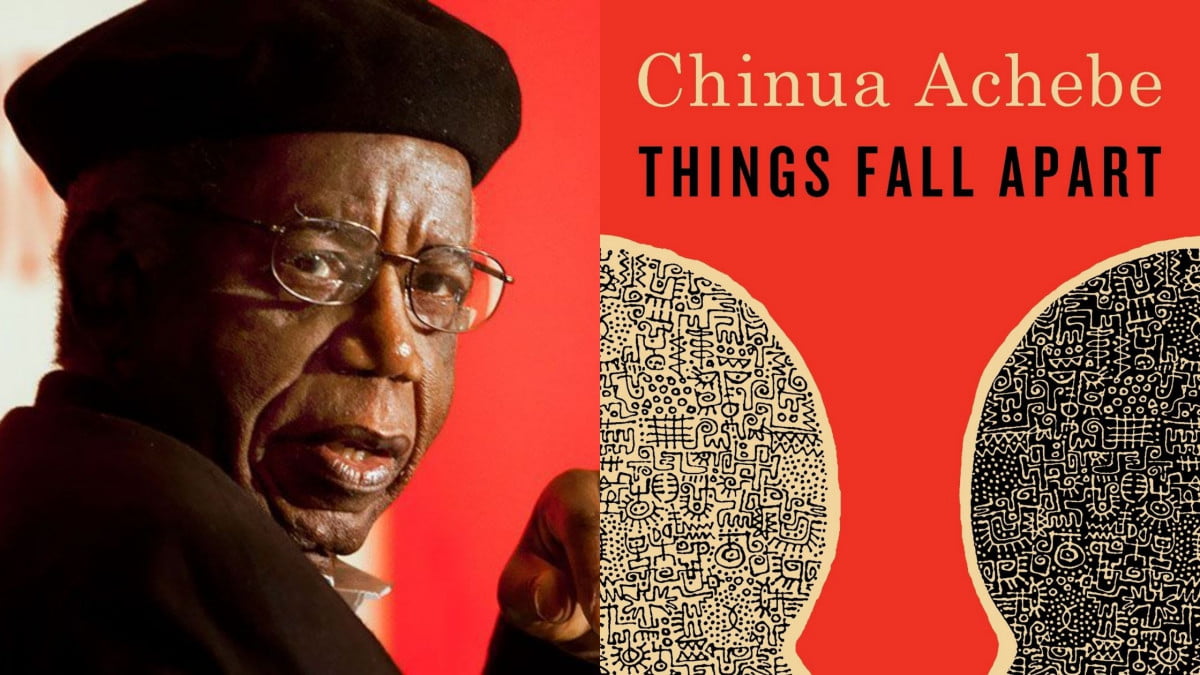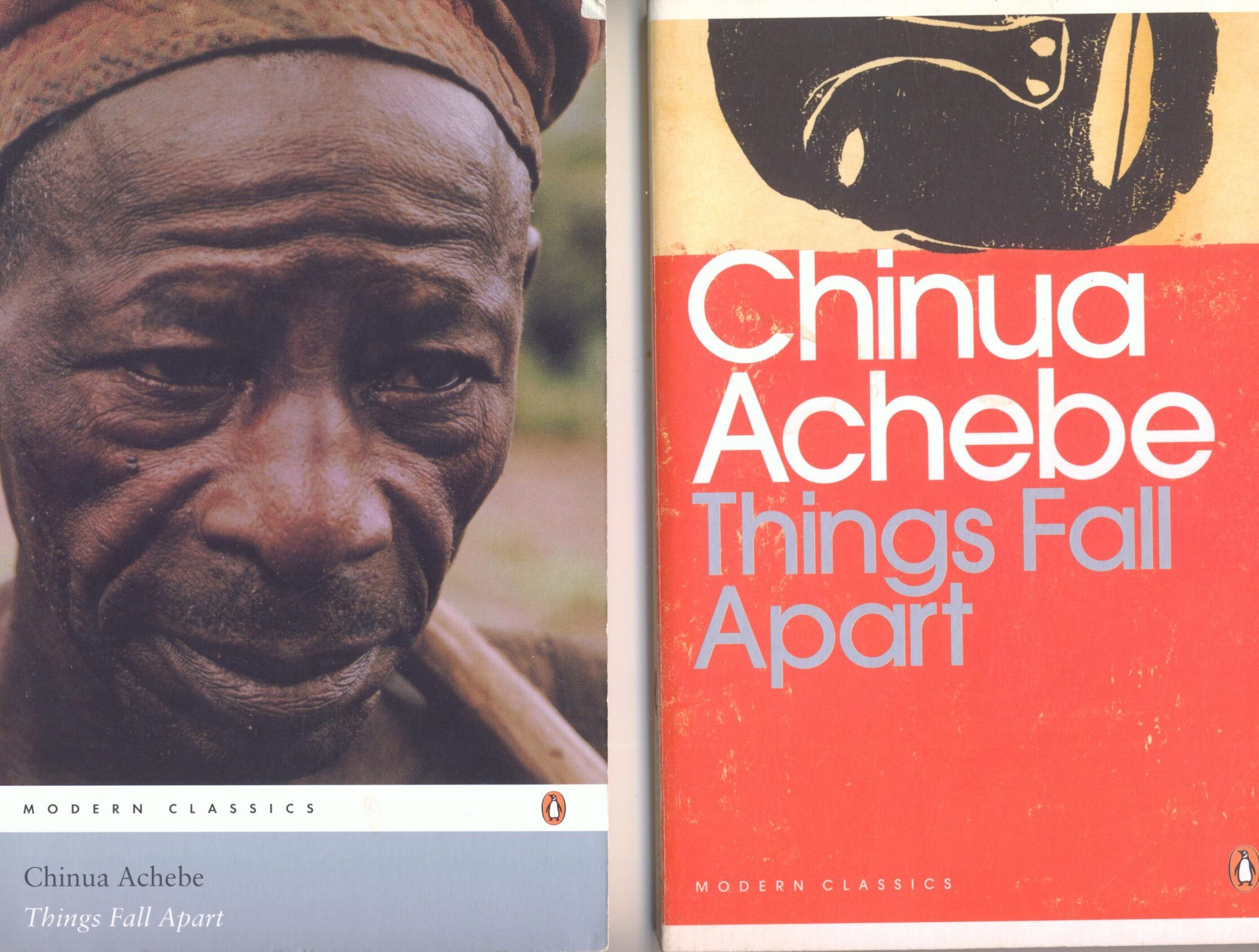Things Fall Apart: A Deep Dive into Chinua Achebe's Masterpiece

Chinua Achebe’s Things Fall Apart, first published in 1958, stands as a cornerstone of modern African literature. More than just a novel, it’s a powerful exploration of cultural collision, the complexities of masculinity, and the devastating impact of colonialism. This in-depth analysis examines the book through various lenses, exploring its genre, authorial style, enduring themes, and lasting cultural impact.
II. Things Fall Apart: A Literary Classification
Things Fall Apart defies easy categorization. While primarily a work of fiction, its narrative transcends simple storytelling. It’s a historical novel, grounded in the pre-colonial Igbo society of late 19th-century Nigeria, yet it avoids romanticizing the past. The novel also possesses elements of tragedy, mirroring the classical Greek form in its exploration of a protagonist’s downfall due to both internal flaws and external pressures. Furthermore, its examination of cultural clash and the consequences of colonialism firmly places it within the realm of postcolonial literature. Its impact on the literary world has secured its place among the classics and bestsellers, with translations into over fifty languages. As a result, Things Fall Apart presents a rich tapestry of literary styles and themes that continue to resonate with readers today. This makes it a versatile piece, apt for various literary analyses and discussions.

II.A. Genre and Classification
Its multifaceted nature makes definitive categorization challenging. While firmly rooted in fiction, its historical setting and exploration of Igbo culture make it a historical novel. The protagonist’s tragic fate aligns it with the conventions of tragedy, while its exploration of colonialism firmly places it in the postcolonial genre. The book’s immense impact has earned it the status of a classic and bestseller. Its classification as a literary work is as varied as the perspectives it inspires.
III. Chinua Achebe: Author and Visionary
Chinua Achebe (1930-2013), born Albert Chinualumogu Achebe, was a Nigerian novelist, poet, professor, and critic. His Igbo heritage profoundly shaped his writing, providing a rich tapestry of cultural detail and insight into Things Fall Apart. His writing style is characterized by its simplicity and directness, a deliberate choice to counter the often patronizing representations of African cultures prevalent in Western literature. Achebe’s inspirations stemmed from his own lived experiences, observations of Igbo society, and a deep concern for the impact of colonialism on African identity. This concern is evident throughout Things Fall Apart, shaping its narrative and thematic concerns. He primarily wrote in English, a choice that has been both praised and criticized for its implications within the context of postcolonial discourse. This choice was partly a reaction to the perceived inadequacy of the existing written Igbo language, which he found too stilted and artificial for literary purposes.

III.A. Achebe’s Writing Style and Influences
Achebe’s style is notably straightforward, eschewing the flowery prose of some Western literary traditions. This simplicity is purposeful, allowing the reader to focus on the story’s powerful themes and the nuances of Igbo culture. The use of proverbs and Igbo oral traditions in Things Fall Apart lends authenticity and depth to the narrative. The influence of Western literature, particularly the structure of classical tragedy, is evident in the novel’s arc, but Achebe uses this form to serve his unique perspective and story. His deep understanding of both Igbo traditions and Western literary forms is what allows him to effectively present his narrative.

IV. Themes and Educational Value
Things Fall Apart is rich with multifaceted themes. The central theme is undoubtedly the cultural clash between the traditional Igbo world and the encroaching forces of British colonialism and Christianity. However, the novel also delves into the complexities of masculinity and its limitations as demonstrated through Okonkwo’s character. The tension between tradition and modernity, the devastating consequences of colonialism, the importance of cultural identity, and the enduring power of storytelling are also explored. The book’s educational value stems from its ability to introduce readers to a different culture, challenge their perspectives on colonialism, and spark critical thinking about complex socio-political issues. The book provides numerous life lessons – the dangers of unchecked ambition, the importance of adaptability, the consequences of clinging to outdated traditions, and the human cost of cultural destruction.
IV.A. Cultural Clash and Colonialism
The novel powerfully illustrates the effects of British colonialism on Igbo society. The introduction of Christianity isn’t presented as a purely benevolent force; instead, it represents a disruptive power that undermines traditional values and beliefs. The novel doesn’t simply depict a conflict between “good” and “evil,” but a complex interaction between two vastly different cultures, each with its own strengths and flaws. Achebe’s portrayal invites the reader to critically examine both sides of this historical clash and the human cost of colonization.
IV.B. Masculinity and its Constraints
Okonkwo’s character serves as a crucial exploration of masculinity. His relentless pursuit of strength and his fear of weakness ultimately lead to his downfall. Achebe doesn’t glorify this type of masculinity; instead, he presents it as a destructive force, both for Okonkwo himself and his community. The novel prompts the reader to reflect on the societal pressures that shape conceptions of masculinity and their potential for both good and harm.
IV.C. The Power of Storytelling and Oral Tradition
Achebe’s skillful integration of Igbo proverbs and oral traditions is central to the novel’s impact. These elements are not mere decorative touches; they are essential to understanding the Igbo worldview, values, and sense of community. The novel demonstrates the powerful role of storytelling in shaping cultural identity, preserving history, and transmitting knowledge across generations. The loss of this oral tradition mirrors the broader cultural disintegration caused by colonialism.
V. Reading Habits and Interpretations
The novel’s enduring popularity speaks to its accessibility and relevance across diverse readerships. Its reading habits vary, depending on the reader’s background and prior knowledge of Igbo culture. Some readers might find the detailed descriptions of Igbo traditions and customs initially challenging, requiring a willingness to engage with unfamiliar cultural contexts. However, those efforts are ultimately rewarded by a deeper appreciation for the richness and complexity of Igbo life. Interpretations of the novel are varied and continue to evolve, reflecting changing perspectives on colonialism, masculinity, and cultural identity. Some readers emphasize the tragic loss of Igbo culture, while others highlight the novel’s criticism of traditional Igbo practices. The novel lends itself to multiple readings and ongoing discussion, which helps in developing crucial critical thinking skills and exploring the varied human experiences.
V.A. Engaging with Unfamiliar Cultural Contexts
Things Fall Apart introduces readers to a cultural landscape vastly different from those often represented in Western literature. For some readers, this requires adjusting their reading habits and engaging in additional research to fully appreciate the novel’s nuances. However, this act of engagement itself offers a rewarding experience, expanding one’s understanding of diverse cultures and perspectives.
V.B. Diverse Interpretations and Ongoing Discussions
The novel’s open-ended nature fosters diverse interpretations and ongoing discussions among readers and scholars. Some focus on the tragic loss of Igbo culture under colonial rule, emphasizing Okonkwo’s resistance. Others criticize certain aspects of Igbo traditions, suggesting a more nuanced understanding of the cultural conflicts depicted. This range of interpretations highlights the novel’s complexity and its continued relevance in contemporary discussions about cultural identity, colonialism, and postcolonial studies. The ongoing conversations surrounding this novel further enriches its overall literary impact and study, leading to a multitude of perspectives.
VI. Cultural Impact and Adaptations
Things Fall Apart has had a profound and lasting cultural impact. It challenged stereotypical Western representations of Africa and paved the way for a more authentic portrayal of African cultures in literature. The novel’s influence is evident in subsequent works by African writers, inspiring generations to tell their own stories. The book has also been adapted to various media, including radio, film, and television. The numerous adaptations of Things Fall Apart highlight its broad appeal and its power to translate across different artistic mediums. The novel has received significant awards, including its recognition among Time’s “100 Best English-language Novels” and its study in numerous universities and schools around the world. It has created various communities of readers and scholars who engage in ongoing discussions of its themes and implications.
VI.A. Literary Influence and Legacy
Things Fall Apart fundamentally altered how African literature was perceived in the West. Prior to its publication, African narratives were largely filtered through European perspectives. Achebe’s novel broke this mold, presenting an authentic Igbo perspective and inspiring countless other African authors to write from their own cultural experiences. This helped develop authentic literature, which has had lasting value for the generation of African writers.
VI.B. Adaptations to Various Media
Things Fall Apart has been successfully adapted to radio, film, and television. These adaptations demonstrate the novel’s adaptability and enduring appeal across various media. Each adaptation offers a unique interpretation and engagement with the source material, further expanding its reach and influence. The novel’s enduring popularity has lead to a variety of adaptations, extending its literary reach and impact.
VI.C. Awards and Recognition
The critical and popular acclaim received by Things Fall Apart is a testament to its literary merit. Its inclusion in prestigious lists, such as Time’s “100 Best English-language Novels,” signifies its place within the canon of world literature. The awards and the recognition further enhance its literary value, showing the worldwide recognition and study of the novel.
VI.D. Communities of Readers and Scholars
Things Fall Apart has fostered vibrant communities of readers and scholars who engage in ongoing discussions about its themes and interpretations. These communities contribute significantly to a deeper understanding of the novel’s complexities and its relevance to contemporary issues. The various discussions and interpretations, which continue to evolve, demonstrate the novel’s lasting relevance and value in various academic and literary settings.
In conclusion, Things Fall Apart is a multifaceted masterpiece that continues to resonate with readers and scholars worldwide. Its exploration of cultural clash, the complexities of masculinity, and the devastating impact of colonialism remains strikingly relevant in today’s world. Its enduring popularity and impact are a testament to Achebe’s masterful storytelling, his profound insights into the human condition, and his unwavering commitment to representing African cultures authentically.